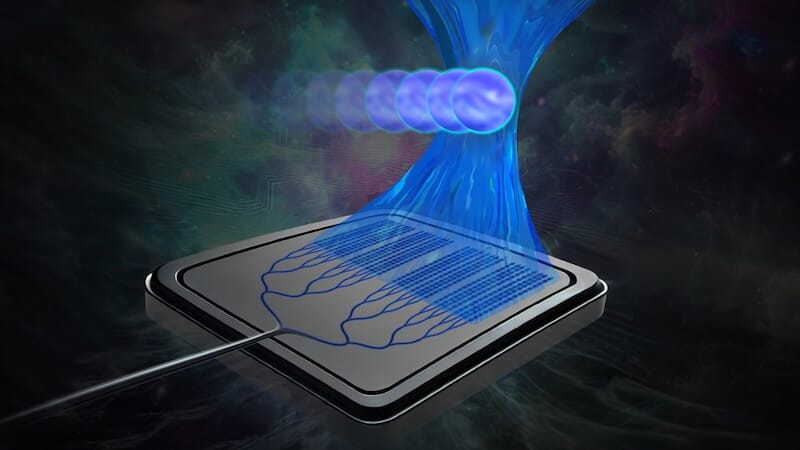
A new tractor beam chip from MIT can move and manipulate biological particles using beams of light. It is intended to help examine DNA and research diseases.
Researchers at the Massachusetts Institute of Technology (MIT) recently unveiled new technology that could come from the Star Wars films. It is based on a chip and enables a tractor beam to manipulate biological particles. The method could help biologists and doctors examine cells and DNA more closely and better understand diseases.
What's special: The tractor beam uses light rays that are emitted by a tiny chip. This allows it to catch and move cells that are several millimeters away. Direct removal of the cells from their sterile environment is not necessary.
Tractor beam chip like in Star Wars
Typically, researchers use optical tweezers to move microscopic particles using light. But these tweezers require bulky microscope setups that require a lot of space and effort. The MIT team has now developed a more compact solution that works directly on a chip.
Conventional chip-based systems were previously only able to manipulate particles that were directly on the chip. But this often led to contamination. With the new technology, removed particles can now be moved to the chip. This preserves the viability of the cells.
Successful manipulation of cancer cells
The team used so-called “integrated optical phase arrays”. This is a technology that allows light rays to be directed precisely. They produce a narrowly focused beam of light that captures and moves the particles, so to speak. The researchers first tested the method on small plastic beads before successfully manipulating cancer cells. They plan to further develop the technology to study even more complex biological systems.
The new chip technology could have far-reaching effects on biomedical research. The cost-effective production of silicon photonics chips could make optical manipulation the standard in laboratories worldwide. This would make it possible to diagnose diseases more efficiently and to better understand biological systems at the single-cell level. Research into disease mechanisms could also receive a significant boost from the technology.
Also interesting:
Source: https://www.basicthinking.de/blog/2024/10/13/traktorstrahl-chip/


